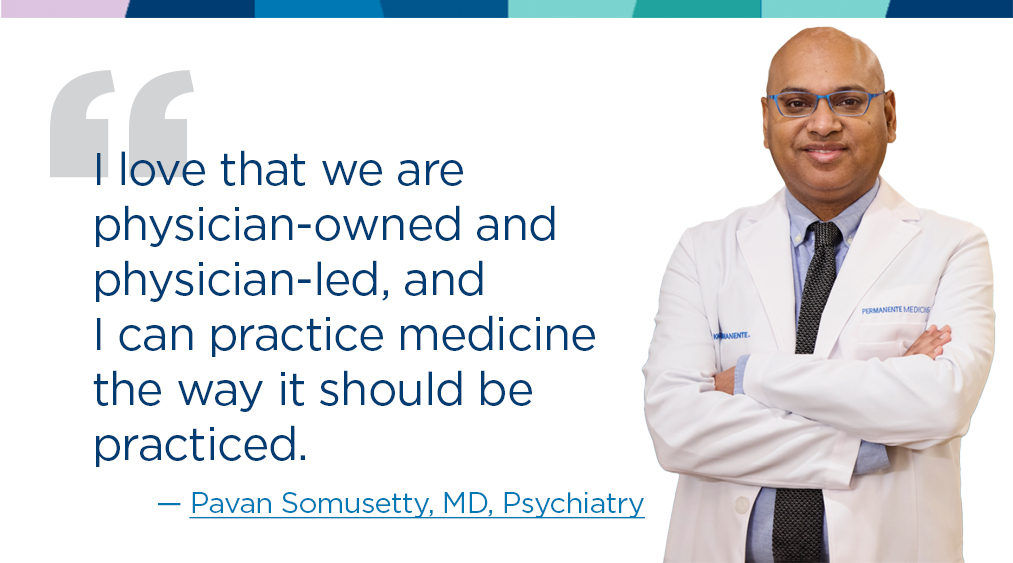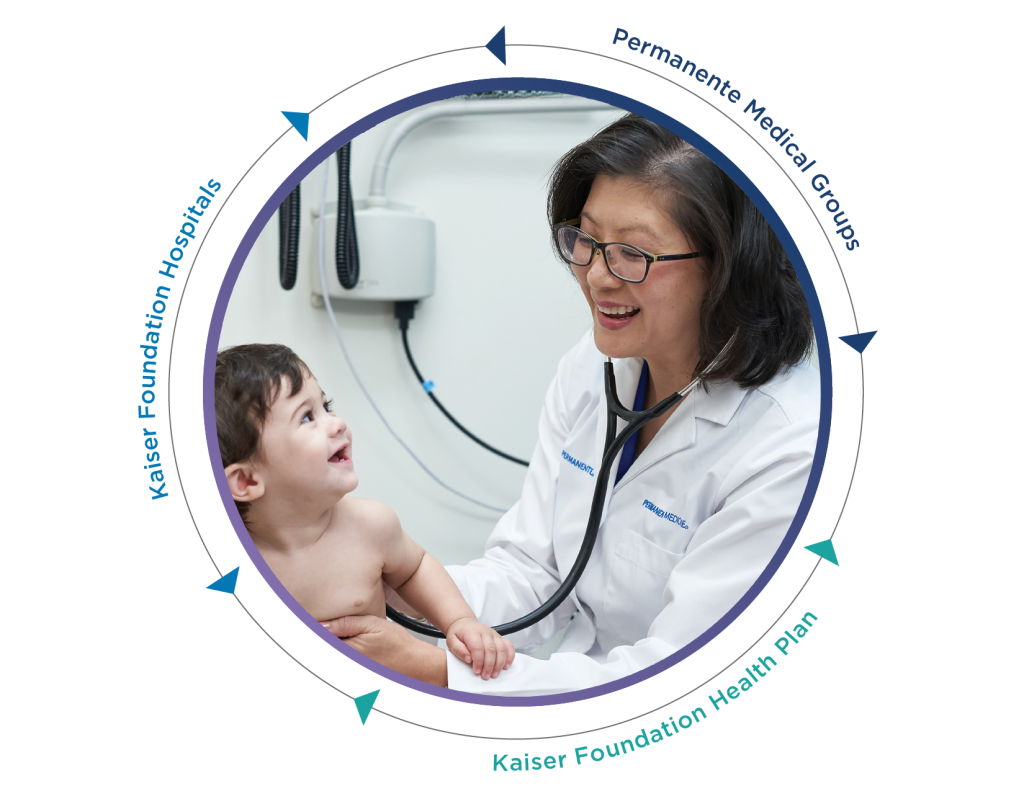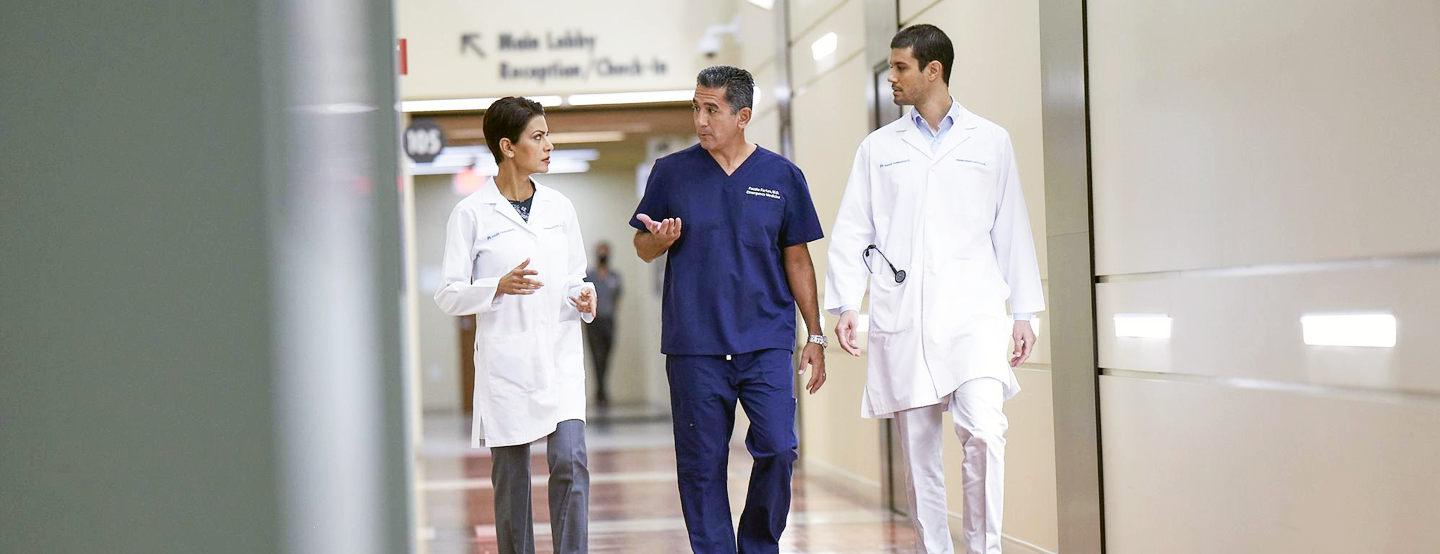What is Permanente Medicine?
The nation’s leading care model for delivering exceptional health care
At the Permanente Medical Groups, we believe that health care should respond to our patients’ needs, when they need it, regardless of their circumstances.
That’s why we developed and launched the original value-based care model in 1945. The physicians and care teams who practice Permanente Medicine provide the focused, personalized care that we all want for our loved ones and ourselves. The continued success of our approach in providing medical excellence makes Permanente Medicine a model for the nation.
 Ethics and compassion: The foundation of value-based care
Ethics and compassion: The foundation of value-based care
At its core, value-based care isn’t just a model — it’s an approach to care grounded in ethics and compassion. It’s about how we deliver care, not just what we deliver.
Ethical practice means doing what’s right for patients, not what drives the highest revenues. Compassionate care is equally important; it’s a personal commitment of our physicians and a deeply held organizational trait. We listen to patients and then guide them toward care that’s right for them — not for what’s more profitable.
This approach to medicine honors the trust our patients place in us and supports our physicians’ calling to practice medicine with integrity. Ethics and compassion aren’t just ideals — they support the success our care model.
 Value-based care also means we don’t charge for each service, procedure, or treatment performed. Instead, we provide courses of care that lead to best outcomes. Unlike fee-for-service hospital systems that often have difficulty organizing a patient’s care, our approach is tightly coordinated, helping people avoid discomfort and aggravation, as well as save time and money.
Value-based care also means we don’t charge for each service, procedure, or treatment performed. Instead, we provide courses of care that lead to best outcomes. Unlike fee-for-service hospital systems that often have difficulty organizing a patient’s care, our approach is tightly coordinated, helping people avoid discomfort and aggravation, as well as save time and money.
We have found that providing ethical, compassionate care to millions of patients is only effective in a value-based care setting — and Permanente Medical Groups are the nation’s leaders in providing such care.
The care principles that drive Permanente Medicine
Six principles are at the heart of our value-based care model, guiding and informing our approach to providing medicine:
We are led by physicians, who work with patients and their families to determine the best course of care — no one else.
We focus completely on our patients and their families, because that’s why we are here — to provide the highest quality medicine possible and alleviate peoples’ concerns.
We collaborate closely to provide team care, so our interactions with patients are seamless, efficient, and effective, no matter where or when they need our care and support.
We embrace — and uncover — the best evidence and research, which facilitates efficient medicine that resolves health issues and prevents unnecessary treatments.
We innovate and adopt the latest clinical technologies, which helps us coordinate and deliver the most effective medicine possible.
We respect our patients’ beliefs and preferences, and strive to deliver care fairly to all, because compassion for and understanding of our patients lead to great outcomes.
By embracing these principles, we’ve defined the philosophy that guides how we practice and deliver medicine.
The Permanente Medicine care model, built for quality
Our care philosophy led us to develop a unique care model that demonstrates what health care should look like in America. We combine medical services and health plan coverage to provide high-quality, affordable, and seamless health care to our patients and the communities we serve. Specifically:
- Permanente Medical Groups provide the health care
- Kaiser Foundation Health Plan provides the coverage
- Kaiser Foundation Hospitals provide the medical facilities
Together, we are Kaiser Permanente, the nation’s leading value-based health care organization. Our unique integration connects us, making possible the delivery of Permanente Medicine to more than 12.6 million Kaiser Permanente members.
We’ve developed our foundational care model over many decades, giving us time and space to identify practices that let us practice medicine for the right reasons — our patients.
 Best practices for delivering Permanente Medicine
Best practices for delivering Permanente Medicine
Prevention, intervention, and chronic care management. We place just as much emphasis on preventing illness as we do on treating it — helping patients avoid the pain and complications that come with more serious conditions. Since 2014, we’ve demonstrated high performance on key care measures tracked by HEDIS® (Healthcare Effectiveness Data and Information Set), often rating in the top 5 to 10% nationally.*
Multispecialty collaboration. We understand the importance of primary care physicians, specialists, and care teams working collaboratively in group practice. This collaboration fosters better coordination and quality of care. For example, a primary care physician may suspect her patient has a potential heart issue, so she’ll quickly reach out to a cardiologist, in the facility or online. No delays — the patient undergoes an electrocardiogram and receives an assessment within hours.
Integrated care. Our coordinated approach brings together all aspects of a patient’s health journey in a single, seamless system that’s supported by shared technology and a common mission. A significant aspect of our integration means that all aspects of care — primary, specialty, labs, imaging, and pharmacies — are found in a single medical facility. This makes it convenient for patients to obtain many services during one visit.
Pursuit of innovation. Delivering high-quality care efficiently means we constantly explore clinical innovations. For example, Kaiser Permanente pioneered electronic health records, which provide significant improvements to care delivery. Today, we can make patients records instantly accessible for coordinated care wherever patients are; surface the latest medical evidence with just a few keystrokes; significantly reduce clinical and prescription errors; and provide reminders for preventive services such as screenings and vaccines.
Prepayment. Our prepaid approach to health care makes medical care accessible and financially predictable for patients and their families. The focus is not on maximizing the volume of clinical services — it’s on keeping patients healthy and preventing future complications. Prepayment helps make high-quality care efficient, accessible, and affordable.
Aligned mission, aligned goals. Our medical groups, health plan, and hospitals work with each other and no one else. That means we’re able to create shared goals to support the health of our members as effectively as possible. Working together to deliver the best possible care also means we don’t compete for revenue or cost savings.
Physician responsibility. The first duty of Permanente physicians is to their patients. This is why we don’t call non-physicians for permission to deliver needed care. We also share accountability for the overall performance of Kaiser Permanente, including clinical outcomes, patient satisfaction, and resource stewardship. Combined with sharing goals, our responsibility helps us clarify roles and determine incentives, letting doctors fully focus on their patients.

This is medicine we believe in. This is Permanente Medicine.